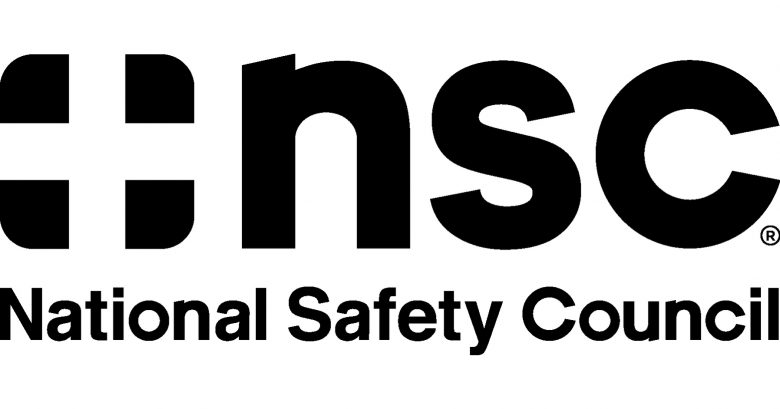Searching for your content…
In-Language News
Contact Us
888-776-0942
from 8 AM – 10 PM ET
News provided by
Aug 16, 2022, 15:30 ET
Share this article
The report will help employers and policymakers be better informed on the availability and reliability of IDT products on the market as well as considerations for implementation
ITASCA, Ill., Aug. 16, 2022 /PRNewswire/ — Impairment in the workplace takes many forms, and it all presents a safety issue. Impairment from chemical substances, fatigue, medical conditions, mental distress and other factors can present a fitness for duty concern as well as impact employee wellbeing, putting employers in need of resources to identify and address the issue. Part of the solution: Impairment Detection Technology. As researched and described by the National Safety Council, IDT is technology with the potential to screen for multiple forms of impairment to aid in fitness for work assessments, and according to an NSC survey, the majority of responding employers are interested.
"Detecting when a worker is impaired is critical to the safety, health and wellbeing of an organization’s workforce," said Jenny Burke, vice president of impairment practice at NSC. "When results of the survey showed 16% of employers surveyed are using IDTs, it shows a confidence in the technology, while simultaneously presenting an opportunity to research these technologies. NSC did what it does best, and the findings of that research make up this report, giving employers the resource they need to make informed safety decisions regarding these detection technologies."
In February 2021, NSC became the first national organization to call on employers to consider far more than substance use when addressing workplace impairment and to outline in policies and procedures anything that could impede an individual’s ability to function normally or safely. This holistic approach includes a number of factors from chemical substances, such as alcohol, opioids or cannabis, to physical factors like fatigue, as well as mental distress and social factors like stress, all of which are claimed to be detectable by several of the IDTs included in the report.
Fifteen impairment technologies from 15 companies were eligible for inclusion in the analysis conducted by NSC. Of the 15 IDTs analyzed:
In addition to IDTs, supervisors themselves have the ability to recognize and respond to perceived impairment in the workplace, and in October 2021, NSC launched a program to equip supervisors, safety professionals and other leaders with the proper training to do so. The recent introduction of the Preventing Impairment in the Workplace Act by Congressman Burgess Owens also calls attention to the importance of this approach, as the legislation authorizes a workplace training program through the National Institute for Occupational Safety and Health to help employers recognize, respond and prevent workplace impairment while addressing increased safety concerns.
Full findings from the new NSC report as well as an IDT web tool are available free of charge. To learn more about impairment at work, please visit: https://www.nsc.org/impairment.
The National Safety Council is America’s leading nonprofit safety advocate—and has been for more than 100 years. As a mission-based organization, we work to eliminate the leading causes of preventable death and injury, focusing our efforts on the workplace, roadway and impairment. We create a culture of safety to not only keep people safer at work, but also beyond the workplace so they can live their fullest lives.
Connect with NSC:
Facebook
Twitter
LinkedIn
YouTube
Instagram
SOURCE National Safety Council
Cision Distribution 888-776-0942
from 8 AM – 9 PM ET
Author Profile
Latest entries
 राशीफल2024.04.26Aaj Ka Rashifal 26 April 2024: आज का दिन इन 7 राशियों के लिए बेहद खास, पढ़ें मेष से मीन तक का राशिफल – प्रभात खबर – Prabhat Khabar
राशीफल2024.04.26Aaj Ka Rashifal 26 April 2024: आज का दिन इन 7 राशियों के लिए बेहद खास, पढ़ें मेष से मीन तक का राशिफल – प्रभात खबर – Prabhat Khabar लाइफस्टाइल2024.04.26लाइफस्टाइल में लाएं ये 5 स्मार्ट बदलाव, जिंदगी हो जाएगी गुलजार, बरसने लगेगा धन-हेल्दी होगा मन – News18 हिंदी
लाइफस्टाइल2024.04.26लाइफस्टाइल में लाएं ये 5 स्मार्ट बदलाव, जिंदगी हो जाएगी गुलजार, बरसने लगेगा धन-हेल्दी होगा मन – News18 हिंदी विश्व2024.04.26Israel Hamas War: हो सकता है तीसरा विश्व युद्ध, इजरायल-हमास जंग के बीच आखिर किसने दी चेतावनी? – Hindustan
विश्व2024.04.26Israel Hamas War: हो सकता है तीसरा विश्व युद्ध, इजरायल-हमास जंग के बीच आखिर किसने दी चेतावनी? – Hindustan राशीफल2024.04.25Aaj Ka Rashifal: कर्क और कन्या राशि वालों को कार्यक्षेत्र में मिल सकती है तरक्की, पढ़ें दैनिक राशिफल – अमर उजाला
राशीफल2024.04.25Aaj Ka Rashifal: कर्क और कन्या राशि वालों को कार्यक्षेत्र में मिल सकती है तरक्की, पढ़ें दैनिक राशिफल – अमर उजाला











